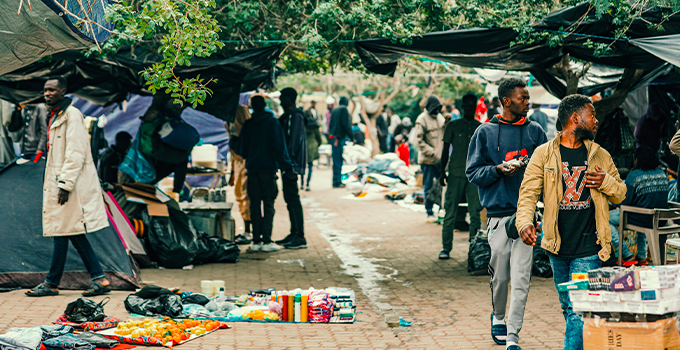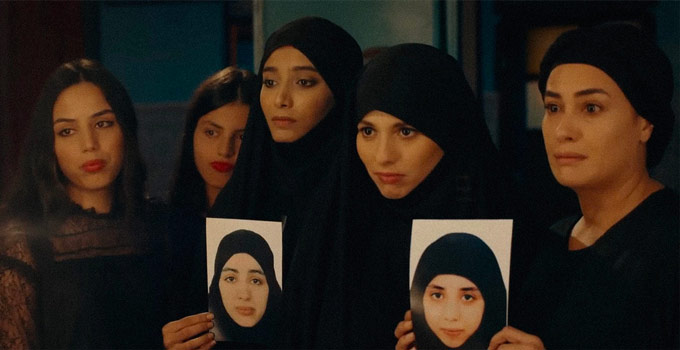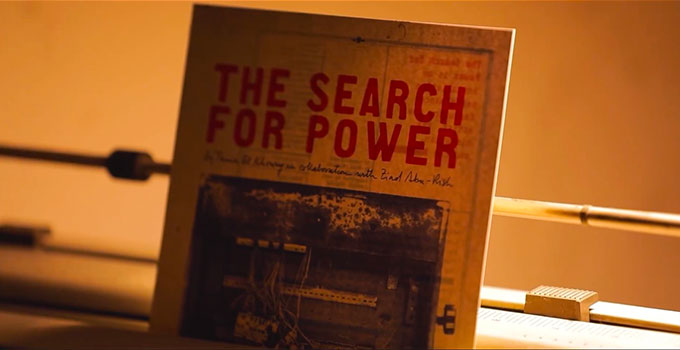Tunisia: Rappers Sentenced to Prison
String of Prosecutions for Artwork, Writing, Lyrics Deemed ‘Insulting’
(Tunis, September 5, 2013) – A criminal court sentenced two Tunisian rappers to prison on August 30, 2013, for “insulting the police,” Human Rights Watch said today. The sentences of a year and nine months in prison, which violate their right to free expression, are the latest in a string of similar prosecutions.
The First Instance Criminal Tribunal of Hammamet, a northern coastal city, convicted the two rappers, Alaa Eddine Yaakoubi, better known as Weld El 15 (“The 15-Year-Old Boy” in Tunisian Arabic), and Klay BBJ, of “insulting the police,” defamation of public officials, and harming public morals. The two were not notified of the trial in advance and were not in the courtroom.
“Sending artists, journalists, and bloggers to prison for critical words and images is hardly worthy of the new Tunisia,” said Joe Stork, acting Middle East and North Africa director at Human Rights Watch. “Authorities should be getting rid of these laws from the old repressive era instead of using them to silence critics.”
The charges against the two rappers stem from their performance on August 22 at the International Festival of Hammamet, which included a song critical of the police. Shortly after the performance, police assaulted the two rappers, arrested and held them for several hours, and then released them pending an investigation. They were convicted a week later by the First Instance Tribunal of Hammamet. The charges were brought under articles 125, 128, and 240 of the penal code.
Another court had convicted Weld El 15 on July 2 on similar charges.
The two rappers went into hiding. Their lawyer told Human Rights Watch that they plan to appeal the decision.
Human Rights Watch reviewed a 17-minute video of the festival events filmed by Emine Mtiraoui, a journalist from the Nawaat news website. At the beginning of the video, Klay BBJ and Weld El 15 perform rap songs with two other rappers. After the show, the video shows police agents going backstage to arrest the two rappers.
The same video shows Weld El 15 at the emergency section of the Hammamet hospital, with several bruises on the face, neck, and right arm. Weld El 15 says on-camera that police officers beat him with their batons in the van en route to the police station. Ghazi Mrabet, the rappers’ lawyer, confirmed to Human Rights Watch that police officers beat his two clients on the trip from the festival to the central police station in Hammamet, and said that they have medical certificates proving their injuries.
He also said that they did not receive a summons to attend their trial, as the code of criminal procedure requires, and that he heard about their conviction through social media.
In March, Weld El 15 released a video for his song “Cops Are Dogs” containing a montage of scenes showing the police hitting people. The First Instance Court of Manouba initially sentenced him to two years in prison, also in absentia, as he went into hiding. He later surrendered and asked to have the case reopened. On July 2, the Appeals Court of Tunis reduced his sentence to six months, suspended.
Article 125 of the Tunisian penal code punishes by up to one year in prison anyone who insults a public servant in the course of the performance of the person’s duties. Article 128 provides for up to two years in prison for defamation of public officials, and article 226 prohibits hampering public morality or decency through acts or words. Since the Tunisian revolution in 2011, authorities have repeatedly used these and other repressive laws of the previous government to prosecute speech they consider objectionable. The National Constituent Assembly, which is also the legislature, has made no move to abolish these laws.
Since early 2012, judicial authorities have prosecuted numerous journalists, bloggers, artists, and intellectuals for peaceful expression. In September 2012, for example, a public prosecutor brought charges against two sculptors for artwork deemed harmful to public order and good morals. On March 28, 2012, the First Instance Criminal Tribunal of Mahdia sentenced two bloggers to prison terms of seven-and-a-half years, confirmed on appeal, for writings perceived as offensive to Islam. One is in prison while the second escaped and obtained asylum in France.
On May 29, 2013, the military court of Sfax, in southeastern Tunisia, tried Hakim Ghanmi on charges of “undermining the reputation of the army,” “defamation of a public official,” and “disturbing others through public communication networks,” over a letter to the defense minister he published on his blog, Warakat Tounsia, in April. In the letter, he complained about the actions of the director of the military hospital in Gabes. On August 23, the public prosecutor brought charges against Mourad Mehrezi, a cameraman who filmed an incident in which a protester threw an egg at the minister of culture. The charges included conspiracy to assault a public servant and harming public morals.
International standards prohibit applying the notion of defamation to state bodies and institutions. Governments and their institutions should not be able to file defamation suits or have such suits filed on their behalf. In his April 20, 2010 report, the UN special rapporteur on the promotion and protection of the right to freedom of opinion and expression, Frank La Rue, stated: “Criminal defamation laws may not be used to protect abstract or subjective notions or concepts, such as the State, national symbols, national identity, cultures, schools of thought, religions, ideologies, or political doctrines.”
This is consistent with the view, supported by the special rapporteur, that international human rights law protects individuals and groups of people, not abstract notions or institutions that are subject to scrutiny, comment, or criticism.
The Johannesburg Principles on National Security, Freedom of Expression, and Access to Information, a set of principles that many experts agree upon and is widely used, states in principle 7(b):
No one may be punished for criticizing or insulting the nation, the state or its symbols, the government, its agencies or public officials, or a foreign nation state or its symbols, government, agency, or public official unless the criticism or insult was intended and likely to incite imminent violence.
“Tunisian authorities need to stop prosecuting people for offending state institutions, even if what they say seems crude,” Stork said. “They should also abolish penal code provisions that provide prison terms for defamation and vaguely worded offenses such as harming ‘public morals’ and ‘public order.’”
For more Human Rights Watch reporting on Tunisia
For more information, please contact:
In Tunis, Amna Guellali (English, French, Arabic): +21-624-485-324 (mobile); or guellaa@hrw.org
In Washington, DC, Joe Stork (English): +1-202-612-4327; or +1-202-299-4925 (mobile); or storkj@hrw.org
In Paris, Jean-Marie Fardeau (French, English, Portuguese): +33-143-595-531; or +33-645-852-487 (mobile); or fardeaj@hrw.org




iThere are no comments
Add yours